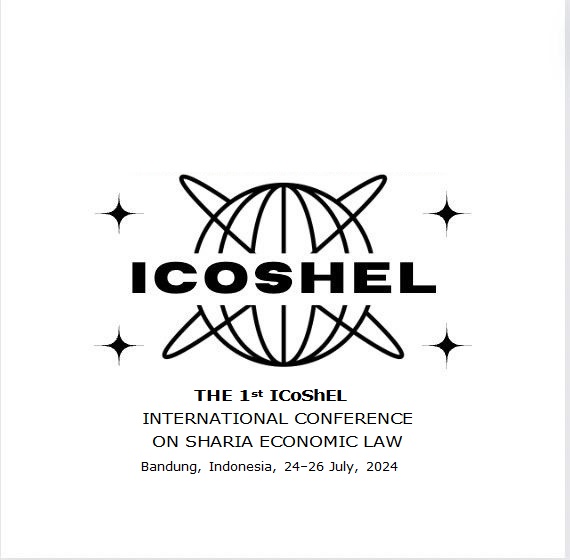Sharia Economic Dispute Resolution Model According to Qanun No. 11 of 2018 concerning Sharia Financial Institutions
DOI:
https://doi.org/10.47766/alhiwalah.v3i1.2893Keywords:
Dispute Resolution Model, Qanun no. 11 2018, Sharia Financial InstitutionsAbstract
When many business entity activities start to appear that use the sharia label, the resolution must be carried out by institutions that truly understand sharia economics. So, creating economic products that have the term sharia attached to them is not easy and requires various kinds of adjustments, such as; applicable laws and regulations, contemporary economic developments in global society which tend to be value-free, varied transaction models, and so on. All of this must be able to be adjusted to sharia principles. The problem formulation in this research is: What is the Sharia Economic Dispute Resolution Model seen from Qanun No. 11 of 2018 concerning Sharia Financial Institutions? The type of research used is library research, namely by studying and examining sources. written text that is relevant to the discussion material. The results of this research are a model for Sharia Economic Dispute Resolution after the implementation of Qanun No. 11 of 2018 concerning Sharia Financial Institutions, a model for resolving disputes through non-litigation (outside of court), namely a model for resolving disputes that is carried out using methods that exist outside of court. usually called an alternative dispute resolution institution.
References
Amelia, Farissa, and Nazaruddin Nazaruddin. 2022. “Aktivitas Bisnis Dalam Tinjauan Aspek Hukum Perjanjian.” Al-Hiwalah: Journal Syariah Economic Law 1 (2): 171–82.
Bambang Sutiyoso, Hukum Arbitrase dan alternatif penyelsain sengketa, yogyakarta, 2008.
Harry Campbell dan Munir Fuady, Arbitarse Nasional ( Alternatif Penyelesaian sengketa, Bandung 2003.
Huala Adolf, Hukum Penyelesaian Sengketa Internasional, Jakarta: Sinar Grafika, 2020.
Kamus Besar Bahasa Indonesia (KBBI), cara, dalam: https://kbbi.web.id/cara.html, diakses pada 20 september 2022.
Mardani, Hukum Ekonomi Syari’ah di Indonesia, Bandung: Refika aditama, 2011.
Neni Hardiati, Sindi Widiana, “Model-model penyelesaian sengketa ekonomi syariah di Indonesia, 2023.
NJ. Coulson, a History of Islamic Law, Edinburg: University Press, 1991
Pasal 1 ayat (6) Perturan Mahkamah Agung Nomor 1 tahun 2008 Tentang Prosedur Mediasi di Pengadilan
Pramesti, Tri Jata Ayu, Litigasi dan Alternatif Penyelesaian Sengketa di Luar Pengadilan,2013.
Qanun No 11 Tahun 2018 Pasal 46 tentang Lembaga Keuangan Syariah.
Sugiyono, Memahami Penelitian Kualitatif Bandung: Alfabeta, 2016.
Sulaiman, Study Syariat Islam di Aceh, Banda Aceh 2018 : Madani Publisher.
Sutrisno Hadi, Metodologi Research, Jilid I Yogyakarta: Andi Offset, 2000.
Undang-undang No. 30 Tahun 1999 Tentang Arbitrase dan Alternatif Penyelesaian Sengketa (APS.
Undang-Undang No 11 Tahun 2018 Tentang Lembaga Keuanan Syariah Pasal 47.
Zulhamdi. 2021. Hukum Bisnis. 1st ed. Indonesia: CV. Pusdikra Mitra Jaya.
Zulhamdi, Zulhamdi. 2022. “Aspek Hukum Perjanjian Dalam Aktivitas Bisnis.” Al-Hiwalah: Journal Syariah Economic Law 1 (1): 75–84.
Downloads
Published
Issue
Section
License
Copyright (c) 2024 Syamsul Rizal, zulhamdi

This work is licensed under a Creative Commons Attribution-NonCommercial-ShareAlike 4.0 International License.







